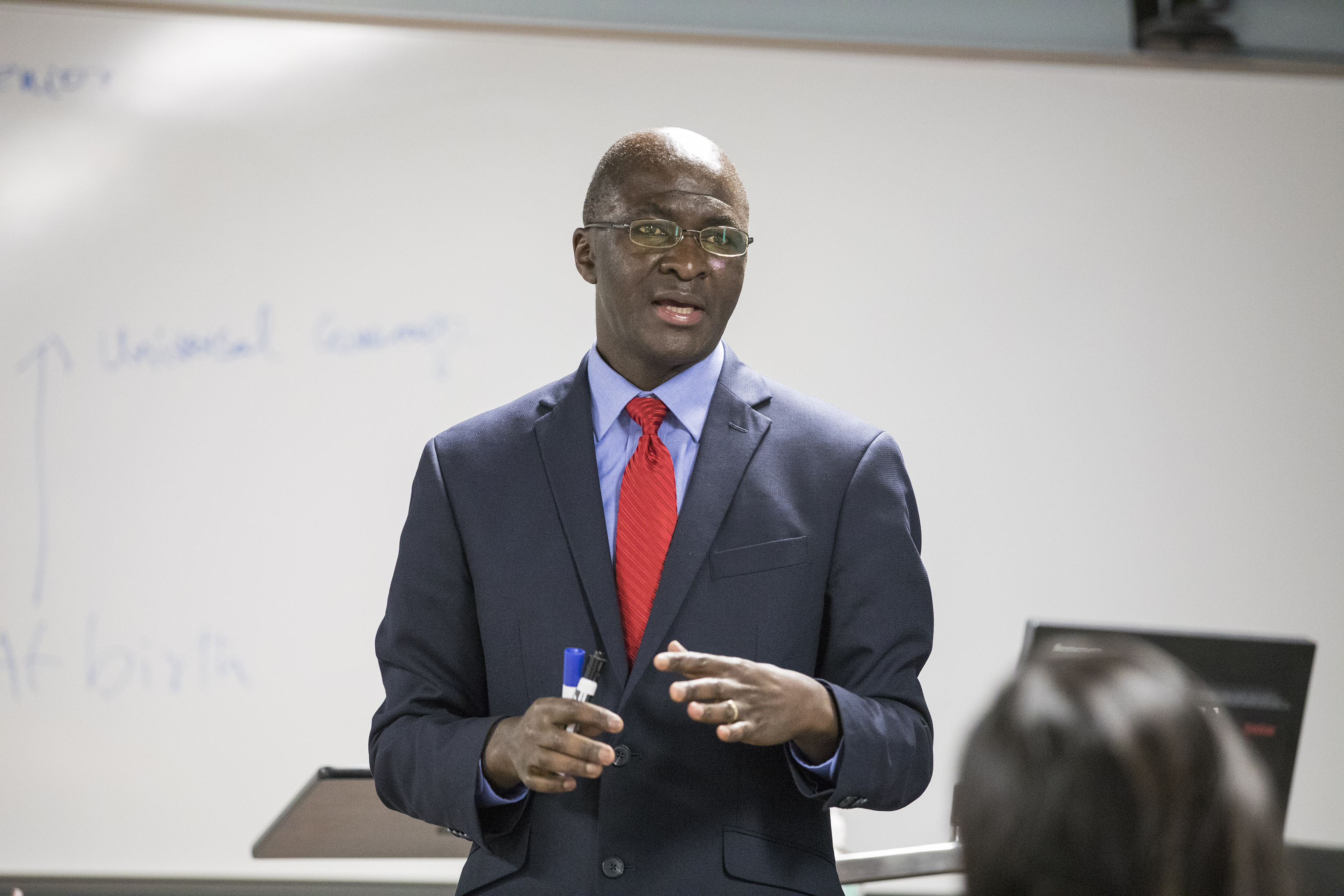The University of Georgia and the U.S. Department of State will co-host the Prevalence Reduction Innovation Forum, a virtual gathering of leaders, researchers and policy experts from around the world dedicated to the fight against human trafficking. The public event will be held May 20, and registration is free. The forum continues on May 21 and 22 among the grantees and other invited stakeholders.
The forum is presented by the State Department’s Office to Monitor and Combat Trafficking in Persons (TIP Office) and the UGA-based African Programming and Research Initiative to End Slavery (APRIES). Current APRIES’ projects are in Guinea, Sierra Leone, and Senegal in West Africa.
This forum extends the science of human trafficking prevalence by using at least two estimation methods in each study site. Through a competitive grant application process, six research groups from the Freedom Fund, John Jay College of Criminal Justice, Johns Hopkins University, NORC at the University of Chicago, Stanford University, and the University of Massachusetts Lowell have been selected as partners.
The teams will work in highly specific sectors in one of six countries: Brazil, Costa Rica, Tanzania, Morocco, Tunisia, and Pakistan, and will examine prevalence in a variety of sectors, including domestic servitude, forced labor in the agriculture industry, and child sex trafficking. APRIES will coordinate and monitor as well as provide technical and logistical supports to the teams.
To ensure the data are robust, the research teams will use two to three different data collection methods. The teams will assess how each method performs in specific contexts and document their process of conducting research. The teams will present their findings at a final conference in spring 2022.
“The Prevalence Forum is the first forum of its kind in the nascent field of human trafficking research,” said David Okech, associate professor at the UGA School of Social Work and the forum’s director. “No research project has validated the robustness of the various prevalence estimation methods in the way or scale of the forum. Findings could guide funding agencies in the future in directing resources to methods that are tested and reliable. The forum could also inform work with other hard-to-reach populations.”
One of the most significant obstacles in the fight against human trafficking is the lack of quality data. Victims of human trafficking are often categorized as hard-to-reach populations, meaning that it can be difficult for researchers to accurately measure the impacts of human trafficking using traditional survey techniques or sampling methods.
“As far as we know, research of this scope and style, with this level of both coordination and specificity has never before been completed in the international human trafficking prevalence field,” said Ambassador-at-Large to Monitor and Combat Trafficking in Persons John Cotton Richmond. “We are glad to be working with the University of Georgia and the research grant recipients on this important project.”
The forum is part of a $15.75 million grant to UGA through the TIP Office, which helped to scale up APRIES’ existing anti-human trafficking work in Sierra Leone and Guinea, as well as begin new work in Senegal. Dr. Lydia Aletraris, Associate Research Scientist, is the Project Coordinator for the prevalence forum.
Other forum planning committee members include Dr. Jody Clay-Warner Meigs Professor of Sociology and Associate Director, Owens Institute for Behavioral Research; Elyssa Schroeder, APRIES pre-doctoral fellow at the UGA School of Social Work, and Dr. Njeri Kagotho, associate professor of social work at Ohio State University.
To see a full list of speakers and to register for the event, please click here.


